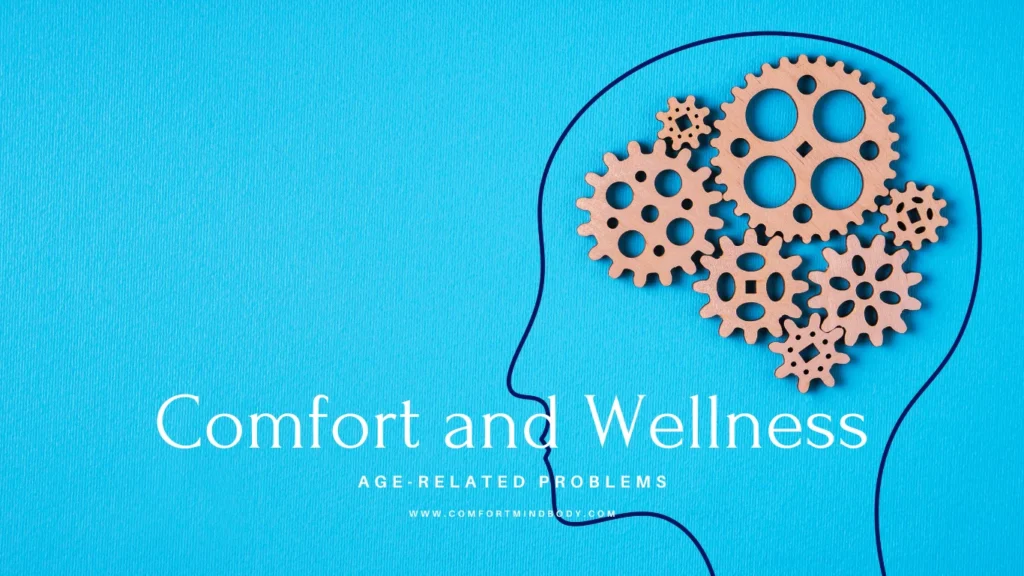Page Contents
ToggleIntroduction:
Tips On How To Improve Brain Health:
Stay active!
Exercise has many known benefits, and it appears that regular physical activity benefits the brain. Many studies show that people who exercise are less likely to experience mental decline. They also have a lower risk of getting Alzheimer’s disease.
It also helps to reduce the natural loss of brain connections that happens with aging. This can reverse some of the issues. Aim to exercise several times per week for 30 to 60 minutes.
Sleep well
Sleep plays an important role in your brain health. It is important to get seven to eight hours of sleep each night. Avoid sleeping in short bursts of two or three hours. Consecutive sleep gives your brain the time to consolidate and store your memories effectively.
Eat a healthy!
Your diet plays a large role in your brain health. Good nutrition helps to keep your brain in optimum condition. Suggestions include:
- Make sure your diet contains sufficient B-group vitamins.
- Glucose is the brain’s sole energy source, so eat a balanced diet and avoid extreme low-carbohydrate diets.
- Narrowed arteries, known as atherosclerosis, can limit blood flow to the brain. To help, eat a low-fat, low-cholesterol diet.
Stay mentally active
You can do many things to keep your brain healthy. Try crossword puzzles, Sudoku, reading, playing cards, or jigsaw puzzles. Finally, try not to watch too much television. It is a passive activity and does not help your brain.
Socialize
Social interaction helps ward off depression and stress, both of which can contribute to memory loss. Research shows that solitary confinement can lead to brain atrophy. Staying socially active may help strengthen your brain health.
Reduce online time
Socialize with real people. Spending all day online won’t help your heath. Get outside and talk with your neighbor or finally introduce yourself. It might be interesting!
Conditions And Events That Can Harm Brain Function:
Getting older or facing age-related issues does not mean the mind stops working as well as before. However, some of the conditions and events more common in older age that affect brain function include:
- Atherosclerosis
- Dehydration
- Dementia, such as Alzheimer’s disease
- Depression
- Diabetes mellitus
- Heart disease
- Medications – doctors should regularly review prescribed medicines. This helps avoid unwanted side effects. If a drug is no longer needed, it should be stopped.
- Poor nutrition, vitamin deficiency
- Parkinson’s disease
- Stroke.
Additionally For Age-Related Problems:
A study from the Mayo Clinic found something important. Moderate exercise in middle age or later can reduce the risk of mild cognitive impairment. A review of 46 trials with over 5,000 participants was published last year.
It found that exercise can reduce cognitive decline. Exercise is also helpful for improving working memory.
A 2017 review of controlled trials found that adults aged 50 and older benefit from moderate exercise. This includes both aerobic exercise and strength training. These activities are linked to better cognitive function.
Final Word:
We often hear about how to keep our hearts healthy. This includes living a healthy lifestyle, eating well, and exercising regularly. But taking care of our brain is just important. The brain is the most important organ in our body. Brain health is vital for our overall health. It controls all of our body’s functions.
What’s more, a healthy brain will help your mind to stay alert, active, and clear and help to promote good mental health. Brain health is about keeping your mind active, feeding it plenty of nutrients and oxygen, and reducing risk factors that can harm the brain.
Start taking care of your brain early, and you won’t have age-related problems!
Age-Related Problems Products Recommendations:
Neurodrine
- Improves memory.
- Based on medical studies.
- Clinical trials that created Neurodrine.
Disclosure: Please note that the links within this product review may generate a small commission. This compensation aids in supporting our research and editorial team. We wish to highlight that our recommendations solely pertain to high-quality products.
Disclaimer: This article serves purely informational purposes and is not intended for the diagnosis, treatment, or cure of any medical condition. Prior to making any changes to your diet or lifestyle or taking supplements, it is imperative to consult a qualified healthcare professional.
Resources:
Age-related problems
- Alzheimer’s Association: Provides a wide range of information on brain health and Alzheimer’s disease.
- Harvard Brain Health: Offers articles and insights on brain health from a reputable academic source.
- Mayo Clinic: A trusted source for medical information, including topics on brain health.
- National Institute on Aging: Provides research-based information on aging and brain health.
- BrainFacts.org: A public information initiative of The Kavli Foundation, the Gatsby Charitable Foundation, and the Society for Neuroscience.
- WebMD: A well-known source of medical information, including topics on brain health.
- The Dana Foundation: Offers information on current research in brain science.
- American Brain Foundation: Provides information on various brain diseases and disorders.
- Mental Health America: Offers resources on mental health, which is closely related to brain health.
